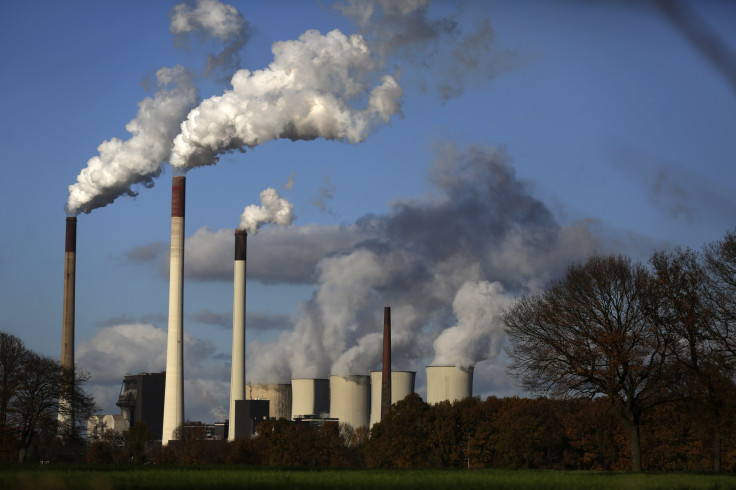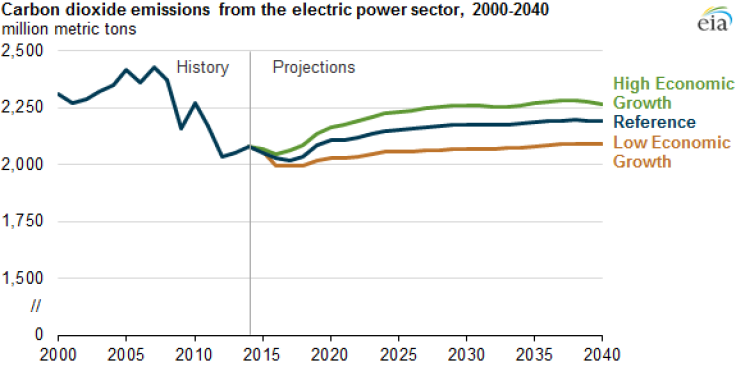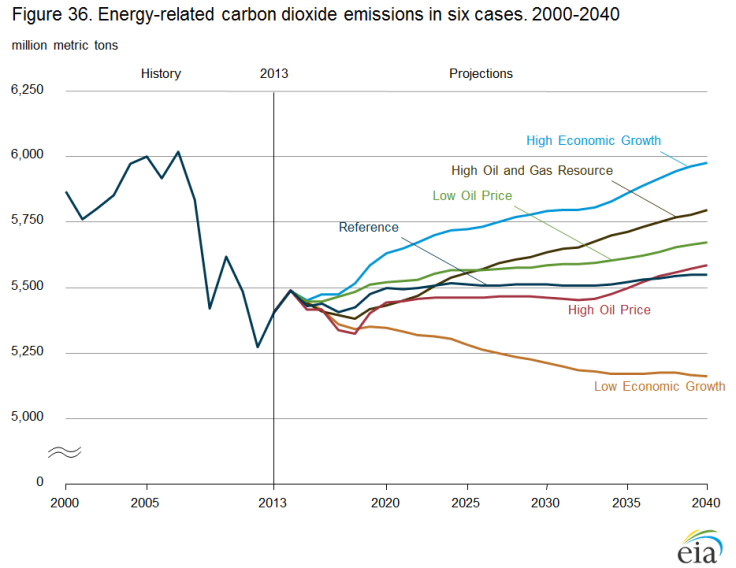US Power Plant Emissions To Rise By 2040 Without Obama's Clean Power Plan: Charts

U.S. power plants are expected to spew higher volumes of carbon dioxide in the coming decades, despite efforts to replace fossil fuels with cleaner wind and solar power and to boost energy efficiency in homes and office buildings. Power-sector emissions could rise by 2 percent or more by 2040, even if the U.S. economy weakens and oil prices spike, federal energy scientists said Friday.
Such a hike, even a seemingly small one, would undermine U.S. and global efforts to reduce greenhouse gas emissions and limit the effects of climate change, which include sea level rise, enduring drought and erratic weather patterns.
But the emissions projections notably do not factor in the Obama administration’s proposed Clean Power Plan, which would require states to reduce carbon output from existing power plants to 30 percent below 2005 levels by 2030. The U.S. Energy Information Administration (EIA) said it only includes existing laws and policies in its annual energy forecasts.


A rise in carbon would also counter the current improvements in power plant emissions. Carbon pollution from the sector has dropped since 2005 as operators increasingly burn cleaner natural gas instead of coal and as states build up their renewable energy capacity. As homes and businesses have become more energy-efficient, Americans are slowing electricity-demand growth, reducing the need to generate electricity, the EIA said in its report.
In 2013, carbon emissions from electricity generation accounted for 38 percent of total energy-related carbon pollution.
Proponents of Obama’s Clean Power Plan say the rule is critical for reducing emissions and encouraging greater investment in wind, solar, nuclear and other lower-carbon power sources. But the policy faces substantial challenges from states and coal industry groups, which argue the measure would jack up electricity prices and make it harder for utilities to compete and for Americans to pay their bills. Governors from fossil fuel-dependent states are suing the U.S. Environmental Protection Agency to block the proposal, and on Wednesday, Senate Republicans unveiled legislation to immediately scrap the plan.
The EPA is expected to issue a final ruling on the Clean Power Plan sometime this summer.
© Copyright IBTimes 2024. All rights reserved.











